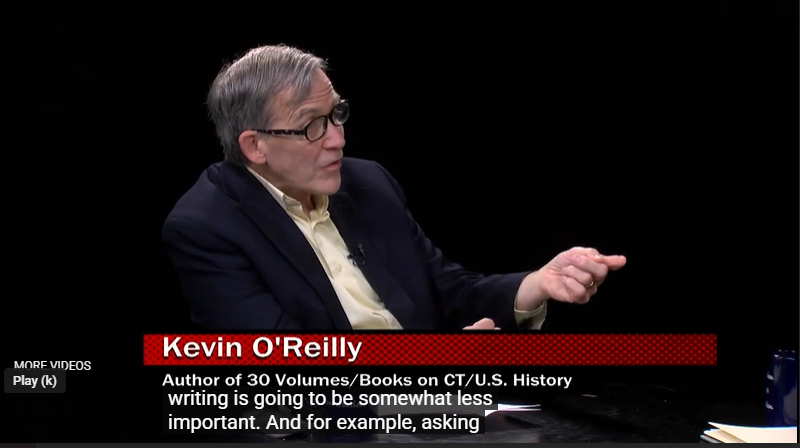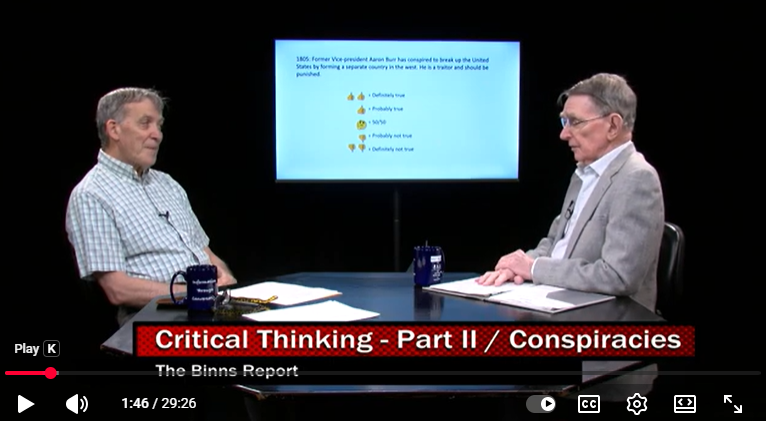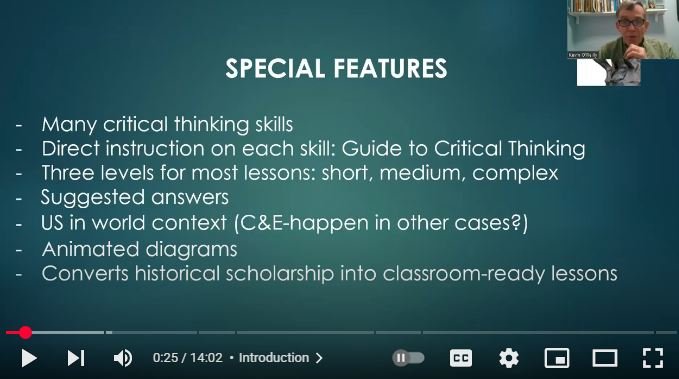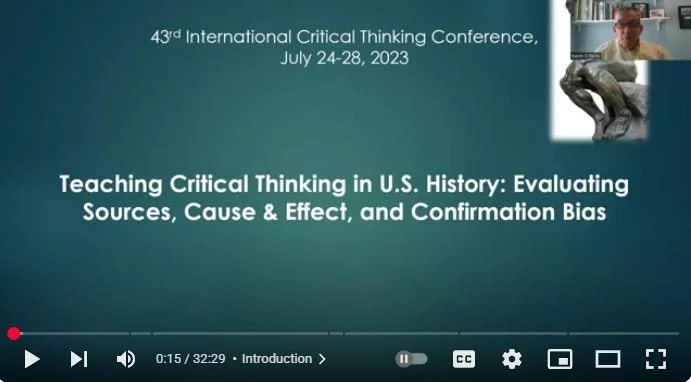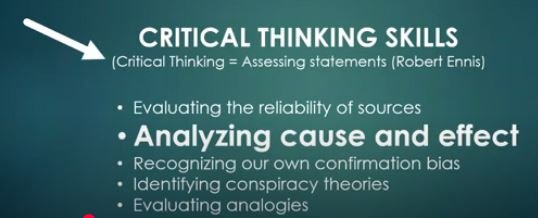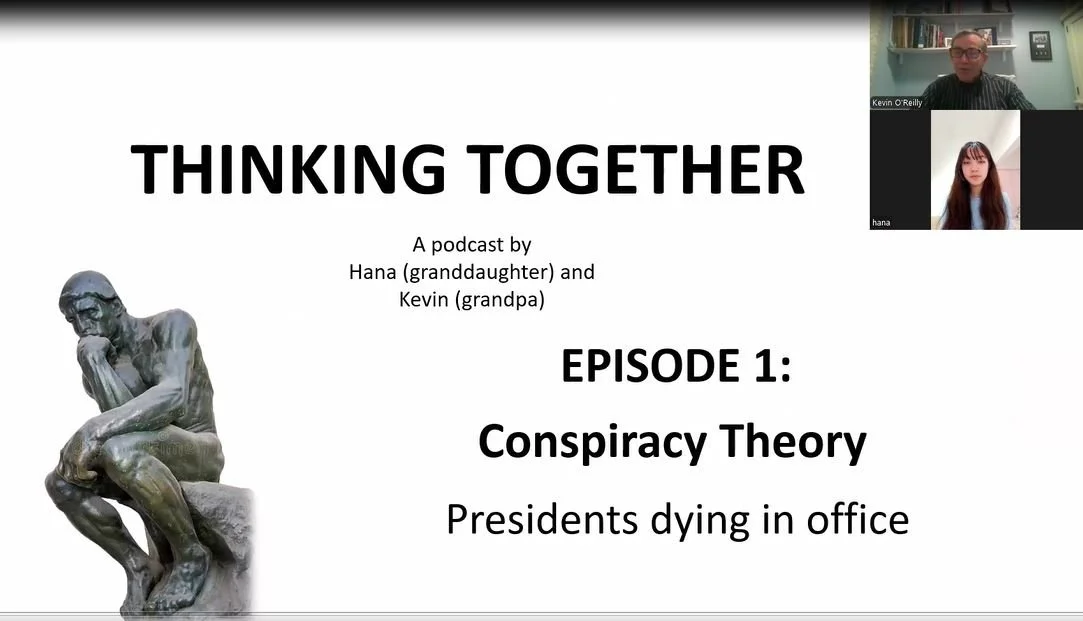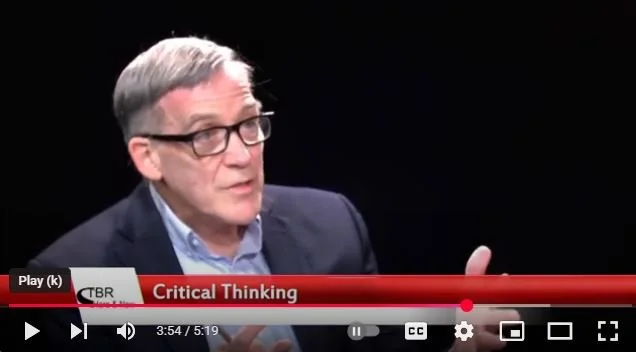
Grow critically-thinking citizens in your social studies classroom.
Explore free curriculum resources for social studies teachers by an award-winning high school history teacher. Students encounter events in US and world history while learning to evaluate sources, spot conspiracy theories, question analogies, analyze cause and effect, and recognize bias.
PROMO: Take my 1-5 minute survey and get a free decision-making textbook!
Click to watch my recent interviews on AI, Social Media and Conspiracy Theories
Critical Thinking about AI (29 minutes)
Now that AI is everywhere, it poses some new challenges and requires even more diligence to get to the bottom of an issue. It's especially challenging in schools for teachers/coaches to guide their students in how to evaluate the information they get from AI. Four guidelines are discussed.
Teaching Conspiracy Theories (29 minutes)
How do we evaluate the conspiracy theories we hear? Conspiracies in history offer examples to develop the critical thinking skills needed for better evaluation. A 3-step process is explained.
Evaluating Social Media (29 minutes)
In this interview, Kevin explains critical thinking skills for evaluating social media as a source of information. The focus is not limited to HS students but is necessary for all of us trying to get the straight skinny on the deluge of "information" that floods the internet & traditional media.
Explore free American history lesson plans that explore…
Autocracy v. Democracy
How well do democracies resist autocracy? Numerous lessons, including:
Why do democracies fail?
Sedition Act, 1798
Election of 1800 decision making
Rise of Nazis in Germany cause & effect
How effective are checks and balances?
Causes of the Civil War (coming soon)
Click on the image to view lessons
Click on the image to view lessons
Conspiracy Theories
61 cases, including:
JFK assassination
Illuminati
Rockefeller-Standard Oil
9-11 false flag
Lincoln assassination
Pearl Harbor

Check out my thinking guides! These guides explain the thinking skills that all the free curriculum on this website promotes!
How-To Teach Critical Thinking Skills (Demos)
SPECIAL FEATURES OF CRITICAL THINKING CURRICULUM (14 MINUTES)
Critical thinking skills taught: evaluating sources, analyzing cause+effect, recognizing confirmation bias, evaluating analogies, evaluating conspiracy theories
3 possible levels for each lesson: short, medium, complex
Answer keys, diagrams
Student-digestible summaries of historical scholars
US in global context
HOW TO TEACH: Evaluating Sources, Cause + Effect, and Confirmation Bias (32 MINUTES)
HOW TO TEACH: Cause + Effect (4 MINUTES)
Analyzing the connection between C+E
Correlation v. causation
Example: which historian makes the best causal argument between the Battle of Saratoga and Americans winning the Revolutionary War?
HOW TO TEACH: Conspiracy Theories (9 MINUTES)
Demo of my using the Conspiracy Detection Kit to help my granddaughter evaluate the Curse of Tecumseh conspiracy theory of presidents’ deaths
What does it mean to teach ‘critical thinking’? (5 minutes)
“People need to back up and say, ‘Where did I get this information and how reliable is it?’ But you have to have critical thinking to think about the sources. Without the critical thinking…we stop talking to one another. And at the point where people aren’t talking to one another, our democracy is in big trouble.”
Kevin O’Reilly
taught high school history for 39 years, 35 of which were in the Massachusetts public school system. He coached students to win more than 20 national awards at National History Day. His passion for teaching and classroom acumen have been recognized in numerous awards, including NCSS/Time Magazine National Teacher of the Year, Richard Farrell National Teacher of the Year, NASDAQ/NCEE National Grand Prize for Economic Education, NCHE Gagnon Prize, American Historical Association Beveridge Teaching Prize, History Videotape Bronze Apple Award, and a National Endowment for the Humanities Fellowship on the Industrial Revolution. Kevin has published 30 books on critical thinking and decision-making in history. Browse the US and World History curriculum listed on this website, or send us an email if there’s a topic you’d like to see covered and he might just create something for your classroom!
Decision Making Lessons in U.S. History & World History as of Dec, 2024
Published by Social Studies School Service Contact Kevin O’Reilly: criticalthinkinginhistory@gmail.com
U.S. HISTORY
Book 1: Colonies
Columbus
Jamestown
Mayflower Compact
Slavery- Barbados
Iroquois- negotiating
Salem Witch Trials
Zenger Case
French & Indian War – causes
Book 2: Revolution/Constitution
Treaty of Paris
Stamp Act
Tea Act
Declaration of Independence
Articles of Confed
Northwest Ordinance
Constitution- powers
Book 3: New Republic
Hamilton proposals
Slave Petition 1790
Neutrality Proc/Jay Treaty
Alien & Sedition
Barbary Pirates
Embargo- War 1812
Erie Canal
Book 4: Jackson/Causes of Civil War
Election of 1828
Jackson Reforms
Election of 1840
Poverty-Workers
Abolitionism
Mexico-Oregon Disputes
Compromise of 1850
Kansas – Nebraska Act
Book 5: Civil War/Reconstruction
African-American Policies
Commander-in-chief
Home Front
Freedmen’s Bureau
Congressional Recon
14th Amendment
Jim Crow
Book 6: Gilded Age
Business Ethics
Business – Labor
Unions
Strikes
1877 Strike
Subsidies/ Immigration
Child Labor
Election of 1884
Corruption
Populism
Election of 1892
Tariffs- taxes
Election of 1896
U.S. HISTORY
Book 7: Imperialism/Progressivism
Spanish –American War
Philippines, 1899
Panama Canal
Progressive reforms
Portsmouth Treaty
Triangle Fire
Election of 1912
Lawrence Strike
Women’s Suffrage
Mexican Intervention
Book 8: WW I/ 1920’s
Neutrality – War
War Industries Board
Creel Committee
League of Nations
Chicago Race Riots
Red Scare
Inflation/Taxes
Election of 1928
Book 9: Depression/ WWII
1932 Election
Causes of Depression
Recovery Proposals
Relief Proposals
Reform Proposals
Neutrality – War
GI Bill
Atomic Bomb
Book 10: Cold War/1950’s
Yalta
Cold War Policies
Election of 1948
Korean War
Mossadegh, 1953
Guatemala, 1954
National Highways
Civil Rights
Book 11: 1960’s/ Vietnam
Election of 1960
Bay of Pigs
Missile Crisis
Great Society
Early Vietnam
Vietnam, 1964-65
Birmingham, 1963
Election of 1968
Book 12: Modern America
Energy Policy 1970s
Soviets-Afghanistan
Reaganomics
Iran Contra
NAFTA
Election of 2000
Terrorism Response
WORLD HISTORY
Ancient History
Egypt, Mesopotamia
Athens, Sparta
Peloponnesian War
Punic Wars
Reforms-Rome
Cleopatra
Han Dynasty
Medieval History
Fall of Rome
Feudalism
Crusades
Magna Carta
Mongols
Mansa Musa
China’s Great Fleet
Renaissance Era
Renaissance Florence
Slave Trade
Aztecs, Incas, Mayas
Reformation
Spanish Armada
Tokugawa Japan
Galileo and Church
18th Century
Ottoman Empire
East India Company
Peter the Great
Early Industrialization in Britain
Causes of the French Revolution
French Revolution, Terror
Catherine the Great
19th Century
Napoleonic Era
Opium War
Reform in Britain
Perry and Japan
German Social Reform
Imperialism in Africa
Sino-Japanese War
20th Century
World War I
Russian Revolution
Versailles Treaty
Munich Crisis, 1938
Great Leap Forward
Thatcherism
Fall of USSR

